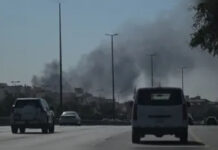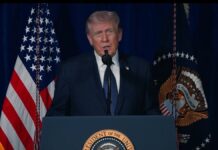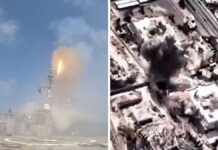X: @vivekbhavsar
New Delhi: February 24, 2025, marks the third anniversary of Russia’s full-scale invasion of Ukraine—a conflict that has profoundly altered global dynamics, strained alliances, and tested the resilience of both nations involved. While Moscow’s initial strategy aimed for a swift victory, the war has devolved into a protracted and costly stalemate. Recent developments indicate not only a shift in military and economic landscapes but also a significant erosion of support for the war within Russia itself.
The conflict has become a grueling war of attrition. Ukrainian forces, despite receiving Western aid, grapple with shortages in ammunition and personnel. Conversely, Russian troops face high casualty rates and dwindling morale. Estimates suggest that Russian military losses have surpassed half a million, leading to internal discord and reports of desertions. The lack of decisive victories has further exacerbated tensions within Russia’s military hierarchy, with infighting reported between regular forces and private military contractors.
Russia’s economy is buckling under the weight of sustained international sanctions. The Kremlin’s attempts to circumvent these restrictions through clandestine trade with nations like Iran, North Korea, and China have proven insufficient. The Russian ruble has depreciated significantly, inflation is on the rise, and labor shortages are becoming acute as conscription drives young men to flee or face the front lines. Revenue from oil and gas, once the backbone of Russia’s economy, has been severely impacted by Western-imposed price caps and a concerted effort by European nations to reduce energy dependence on Moscow. Notably, Russia’s National Wealth Fund has shrunk to $31 billion, down from $210 billion in June 2022—a staggering decline.
Despite the Kremlin’s tight grip on information, signs of public dissent are emerging. Independent polls, though limited due to state censorship, indicate a decline in support for the war. Families of fallen soldiers are voicing their grievances, and the economic hardships faced by the general populace are fueling discontent. Social media, albeit heavily monitored, has become a platform for subtle expressions of opposition. Notably, within Russia’s elite circles, there are murmurs of disapproval and discussions about a post-Putin era.
Ukraine’s steadfast resistance is met with a complex international backdrop. Political debates within Western nations regarding the continuation of military aid have led to delays in critical support. The U.S. Congress remains divided, with some members advocating for a pivot towards addressing challenges posed by China. European countries, while largely supportive, are contending with domestic issues such as rising costs and the influx of refugees. NATO, however, has reinforced its eastern defenses, signaling a readiness to respond should the conflict spill beyond Ukraine’s borders.
President Vladimir Putin’s once unassailable authority appears to be waning. The death of Yevgeny Prigozhin, leader of the Wagner Group, in 2023 following a failed mutiny, highlighted fractures within Russia’s military leadership. Corruption, logistical failures, and growing tensions between the Defense Ministry and Kremlin-affiliated militias underscore the systemic issues plaguing Russia’s war efforts.
China, initially a steadfast partner to Russia, has adopted a more cautious stance. While benefiting from discounted Russian energy exports, Beijing has refrained from providing direct military assistance, wary of attracting Western sanctions and global condemnation. This cautious approach reflects China’s broader strategic calculations, especially concerning its interests in the Indo-Pacific region.
As the war enters its fourth year, the trajectory remains uncertain. Ukraine continues to demonstrate resilience, bolstered by international support, yet faces significant challenges on multiple fronts. Russia, despite its vast resources, is contending with economic decline, military setbacks, and a fracturing societal consensus. The critical question looms: will President Putin adapt his strategy to navigate these mounting pressures, or will the very foundations of his leadership be undermined by the protracted conflict he instigated?








I was wondering if you ever considered changing the structure of your blog? Its very well written; I love what youve got to say. But maybe you could a little more in the way of content so people could connect with it better. Youve got an awful lot of text for only having one or 2 images. Maybe you could space it out better?
Thanks for another informative site. Where else could I get that kind of info written in such a perfect way? I have a project that I am just now working on, and I have been on the look out for such information.
I like this post, enjoyed this one appreciate it for posting.
Its like you learn my mind! You appear to understand so much approximately this, such as you wrote the e book in it or something.
I feel that you simply could do with some percent to force the message
house a bit, but instead of that, this is great blog.
An excellent read. I will certainly be back.
Have a look at my blog post :: nordvpn coupons inspiresensation (http://cia.sh)
Este site é realmente fascinate. Sempre que acesso eu encontro novidades Você também pode acessar o nosso site e descobrir detalhes! conteúdo único. Venha saber mais agora! 🙂
cheap clomid without rx buy clomid clomiphene rx clomid pills for sale buy clomiphene without dr prescription can i order cheap clomiphene prices where buy clomiphene price
This is a keynote which is virtually to my heart… Myriad thanks! Faithfully where can I find the acquaintance details due to the fact that questions?
zithromax generic – buy tindamax cheap generic metronidazole
buy generic rybelsus over the counter – order semaglutide 14mg buy generic periactin over the counter
Cncbet Adalah Bandar Judi Bola Terlengkap & Terpercaya #1 Di Indonesia
I would like to thnkx for the efforts you have put in writing this blog. I am hoping the same high-grade blog post from you in the upcoming as well. In fact your creative writing abilities has inspired me to get my own blog now. Really the blogging is spreading its wings quickly. Your write up is a good example of it.
order motilium 10mg generic – motilium over the counter flexeril sale
augmentin cheap – atbioinfo.com buy acillin pill
order generic nexium 40mg – anexa mate order nexium without prescription
I do accept as true with all of the ideas you’ve introduced in your post.
They are very convincing and can definitely work. Nonetheless, the posts are very brief for starters.
May you please extend them a bit from next time?
Thank you for the post.
Look into my page; eharmony special coupon code 2025
purchase warfarin generic – cou mamide cheap cozaar 25mg
Hey, you used to write magnificent, but the last few posts have been kinda boringK I miss your super writings. Past few posts are just a bit out of track! come on!
mobic 15mg usa – swelling meloxicam cost
buy prednisone paypal – corticosteroid deltasone 40mg generic
I couldn’t resist commenting. Perfectly written!
Also visit my site :: vpn
new ed pills – ed pills no prescription buy cheap generic ed pills
amoxil ca – https://combamoxi.com/ cheap amoxil generic
order generic diflucan – https://gpdifluca.com/ order fluconazole 100mg sale
cenforce 100mg pills – purchase cenforce order cenforce 50mg without prescription
cialis no prescription – https://ciltadgn.com/ cialis patent expiration date
buy zantac generic – https://aranitidine.com/ order zantac 150mg without prescription
cialis next day delivery – site cialis high blood pressure
This is a keynote which is virtually to my heart… Many thanks! Faithfully where can I lay one’s hands on the contact details in the course of questions? este sitio
order viagra from uk – https://strongvpls.com/# viagra blue pill 100
Thanks on sharing. It’s acme quality. https://buyfastonl.com/isotretinoin.html
I’ll certainly bring to skim more. https://ursxdol.com/clomid-for-sale-50-mg/
I am really loving the theme/design of your blog.
Do you ever run into any browser compatibility issues?
A small number of my blog readers have complained about my site not working correctly in Explorer but looks
great in Safari. Do you have any recommendations
to help fix this problem? https://tinyurl.com/2ygltljs gamefly
3 month free trial
More peace pieces like this would make the web better. https://prohnrg.com/product/loratadine-10-mg-tablets/
I am in fact enchant‚e ‘ to glitter at this blog posts which consists of tons of useful facts, thanks for providing such data. https://aranitidine.com/fr/acheter-cialis-5mg/
Hello, just wanted to tell you, I liked this article.
It was inspiring. Keep on posting! What does a vpn do https://tinyurl.com/2ax86k6l
More articles like this would frame the blogosphere richer. https://ondactone.com/simvastatin/
Today, while I was at work, my sister stole my iPad and tested to see if it can survive a 25
foot drop, just so she can be a youtube sensation. My iPad is now destroyed and she has 83 views.
I know this is completely off topic but I had to share it with someone!
Every weekend i used to pay a quick visit this website, because i wish for
enjoyment, as this this web site conations really pleasant funny information too.
Greetings! Jolly gainful advice within this article! It’s the little changes which wish make the largest changes. Thanks a portion quest of sharing!
https://proisotrepl.com/product/tetracycline/
This is the kind of content I get high on reading. http://seafishzone.com/home.php?mod=space&uid=2291209
I am extremely inspired together with your writing talents and also with the structure for your weblog. Is this a paid theme or did you customize it your self? Either way stay up the nice high quality writing, it is uncommon to see a nice blog like this one nowadays..
Definitely imagine that that you said. Your favourite reason seemed to be at the internet the easiest thing to be mindful of. I say to you, I certainly get irked while other folks think about issues that they plainly don’t understand about. You controlled to hit the nail upon the top and outlined out the entire thing without having side-effects , other folks could take a signal. Will probably be again to get more. Thanks
Hello. impressive job. I did not expect this. This is a impressive story. Thanks!
forxiga where to buy – https://janozin.com/# dapagliflozin 10mg sale
I enjoy your writing style genuinely loving this site.
I’ve been browsing online greater than 3 hours today, yet I never discovered any interesting article like yours. It is beautiful value sufficient for me. Personally, if all webmasters and bloggers made good content as you did, the web will likely be a lot more useful than ever before. “Dreams have as much influence as actions.” by Stephane Mallarme.
Very interesting topic, thank you for posting.
More content pieces like this would urge the web better. http://bbs.51pinzhi.cn/home.php?mod=space&uid=7112492
Hey would you mind stating which blog platform you’re
using? I’m going to start my own blog soon but I’m having a tough
time making a decision between BlogEngine/Wordpress/B2evolution and Drupal.
The reason I ask is because your design seems different then most blogs and I’m looking
for something unique. P.S Sorry for getting off-topic but
I had to ask! https://tinyurl.com/yu2htvml eharmony special coupon code 2025
Thanks for any other informative blog. Where else could I am getting that kind of
information written in such an ideal manner? I’ve a undertaking that I am just now working on, and I have been at the look out for such info.
My web page :: http://winkler-martin.de/messages/61849.html
This web site really has all the information I wanted about this subject and
didn’t know who to ask.
my web blog; https://tinyurl.com/mtktkcc8
You can keep yourself and your dearest nearby being heedful when buying pharmaceutical online. Some druggist’s websites function legally and provide convenience, privacy, rate savings and safeguards for purchasing medicines. buy in TerbinaPharmacy https://terbinafines.com/product/reglan.html reglan
I’ll certainly bring back to skim more. TerbinaPharmacy
More text pieces like this would make the web better.
Đến với J88, bạn sẽ được trải nghiệm dịch vụ cá cược chuyên nghiệp cùng hàng ngàn sự kiện khuyến mãi độc quyền.
搭载智能站群程序,自动化搭建与管理,为SEO项目提供核心驱动力。站群程序
采用高效谷歌站群策略,快速提升网站在搜索引擎中的可见性与权重。谷歌站群
Youre so cool! I dont suppose Ive read something like this before. So nice to seek out somebody with some authentic thoughts on this subject. realy thank you for starting this up. this web site is something that’s wanted on the net, somebody with somewhat originality. useful job for bringing one thing new to the internet!
Great post. I was checking constantly this blog and I’m impressed! Extremely useful information specially the last part 🙂 I care for such info much. I was looking for this particular info for a long time. Thank you and best of luck.
Those are yours alright! . We at least need to get these people stealing images to start blogging! They probably just did a image search and grabbed them. They look good though!
hello there and thank you on your information – I have certainly picked up anything new from right here. I did then again expertise several technical points the usage of this web site, since I experienced to reload the web site many occasions previous to I may just get it to load correctly. I were brooding about in case your hosting is OK? No longer that I am complaining, but sluggish loading circumstances times will sometimes affect your placement in google and can damage your high quality rating if advertising and ***********|advertising|advertising|advertising and *********** with Adwords. Well I’m including this RSS to my email and can glance out for much more of your respective interesting content. Ensure that you replace this once more soon..
I couldn’t refrain from commenting. Perfectly written! https://www.highlandguides.com/ vpn
I like this blog very much so much wonderful info .
I’ve been absent for a while, but now I remember why I used to love this web site. Thank you, I¦ll try and check back more often. How frequently you update your web site?
top 10 online casinos usa
casino gambling games
top online casinos usa
betmgm NH https://betmgm-play.com/ betmgm 200 free bets
Discover sanctuaries of serenity amid exciting bets. crown coins casino app provides calm interfaces for focused play. Bet in peace and win in style!
Sweet Bonanza tempts you with colorful symbols and explosive potential. Land sweet bonanza review 8+ matches anywhere and watch the wins roll in. Spin for glory!
Prairie paradise packed with payout punch. buffalo deluxe brings bonus retriggers, multipliers, and gold glory. Stampede!
Spin, win, and redeem — that’s the macumba way! Get free Sweeps Coins on signup and enjoy non-stop casino excitement. Cash prizes are closer than you think!
Millions of bets every day. Thousands stake casino of winners every week. You’re next.
Join Play DraftKings casino Casino and level up your game. Wager $5 to unlock 500 bonus spins on Cash Eruption, with up to $1K credits covering first-day net losses. The action never stops!